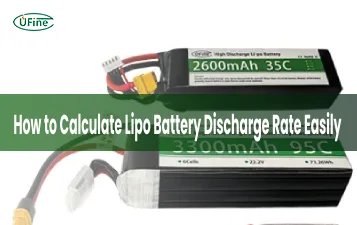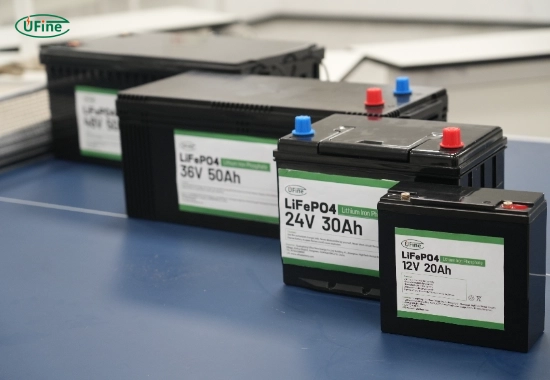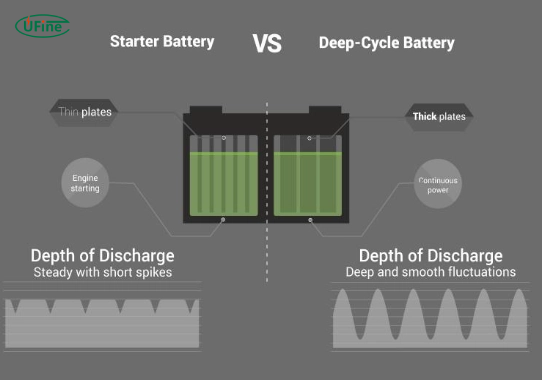A deep cycle RV battery is crucial for anyone looking to enjoy their RV adventures without worrying about running out of power. Whether camping in the wilderness or traveling across the country, understanding deep cycle batteries will help you make informed decisions about your RV’s power needs. This guide will cover everything you need to know about deep cycle RV batteries, including their types, maintenance tips, and comparisons with other battery types.
Part 1. What is a deep cycle RV battery?
What is a deep-cycle RV battery? A deep-cycle RV battery is designed to provide steady power over an extended period. Unlike regular batteries, which are meant for short bursts of energy, deep-cycle batteries can be discharged and recharged many times without losing efficiency. They are perfect for powering appliances and devices in your RV, such as lights, refrigerators, and water pumps.
Key Features:
- Designed for Deep Discharge: Deep cycle batteries can be discharged to 80-100% of their capacity. This means you can use them for extended periods without worrying about damaging the battery.
- Durable Construction: These batteries have thicker plates and more robust materials than standard batteries. This durability allows them to withstand repeated discharges and recharges.
- Longer Lifespan: With proper care, deep cycle batteries can last many years. This longevity makes them a cost-effective choice for RV owners.
In summary, deep cycle RV batteries are essential for providing reliable power during travel, especially when off the grid.
What Everyone Using Lithium Batteries for RV Should Know
Part 2. How does a deep cycle RV battery work?
Deep cycle RV batteries store energy chemically and convert it into electrical energy when needed. Here’s how they work:
- Electrolyte Solution: Most deep cycle batteries contain a liquid electrolyte solution of sulfuric acid and water. This solution allows ions to flow between the battery’s plates during discharge and recharge cycles.
- Lead Plates: The battery consists of lead plates that act as electrodes. When discharging, chemical reactions occur at these plates, converting stored chemical energy into electrical energy.
- Discharge Cycle: During use, the battery discharges electrons by allowing them to flow from the negative plate to the positive plate through an external circuit. This process powers your devices.
- Recharge Cycle: The reverse process occurs when connected to a charger or an alternator. Electrical energy from the charger is converted back into chemical energy stored in the electrolyte solution.
Understanding this process is essential for maintaining your battery’s health and ensuring it lasts as long as possible.
Part 3. Differences between deep cycle batteries and regular batteries
Deep cycle batteries and regular (or starting) batteries serve different purposes:
- Deep Cycle Batteries: Designed for sustained power over time; can be deeply discharged without damage.
- Regular Batteries: Designed for short bursts of high power, they should not be deeply discharged as they can shorten their lifespan.
Here’s a simple comparison table:
| Feature | Deep Cycle Batteries | Regular Batteries |
|---|---|---|
| Purpose | Sustained power over time | Short bursts of high-power |
| Discharge Depth | Deeply discharged (80-100%) | Should not be deeply discharged (20% max) |
| Plate Design | Thicker plates for durability | Thinner plates for quick energy release |
| Lifespan | Longer with proper maintenance | Shorter lifespan due to frequent cycling |
Understanding these differences helps you choose the right battery type for your needs.
Part 4. Types of deep cycle RV batteries
There are several types of deep cycle RV batteries available on the market:
- Flooded Lead-Acid Batteries: These are the most common type. They require regular maintenance, including checking water levels. They are cost-effective but can spill if not handled properly.
- Absorbent Glass Mat (AGM) Batteries: AGM batteries are sealed and maintenance-free. They perform well in cold temperatures and have a longer lifespan than flooded lead-acid batteries but come at a higher price.
- Gel Batteries: Similar to AGM batteries, gel batteries are also sealed and do not require maintenance. They are safer than flooded lead-acid batteries but tend to be more expensive.
- Lithium-Ion Batteries: These are becoming increasingly popular due to their lightweight design and high efficiency. They can be discharged deeper than lead-acid batteries without damage but have a significantly higher upfront cost.
Each type has advantages and disadvantages, so consider your needs and budget when choosing a deep cycle battery.
Part 5. How do deep cycle RV batteries compare to lithium-ion batteries in terms of performance and cost?
When comparing deep cycle RV batteries with lithium-ion batteries, several factors come into play:
Performance:
- Deep Cycle Batteries: Generally have lower energy density than lithium-ion options but can handle multiple discharge cycles well.
- Lithium-ion batteries: Offer higher energy density, meaning they store more power in a smaller size. They also have faster charging times and can be discharged deeper without damage.
Cost:
- Deep Cycle Batteries: Typically less expensive upfront but may require more frequent replacements.
- Lithium-Ion Batteries: Higher initial cost but often provide better long-term savings due to their longer lifespan and reduced maintenance needs.
In summary, lithium-ion batteries offer superior performance and longevity but are more expensive than traditional deep-cycle options.
Part 6. Maintenance tips for deep cycle RV batteries
Proper maintenance is key to extending the life of your deep cycle RV battery:
- Regular Charging: Avoid letting your battery discharge below 50% capacity. Recharge promptly after use to prevent sulfation, which can damage the plates.
- Check Water Levels: For flooded lead-acid batteries, regularly check electrolyte levels and top up with distilled water as needed. This helps maintain optimal performance.
- Clean Terminals: Use baking soda and water or commercial terminal cleaners to clean terminals from corrosion. Clean terminals help ensure good electrical contact.
- Monitor Temperature: Store and operate your battery within recommended temperature ranges to prevent overheating or freezing damage. Extreme temperatures can significantly affect performance.
Part 7. Common problems with deep cycle RV batteries
Despite their durability, deep cycle RV batteries can encounter issues:
- Sulfation: Occurs when a battery is left discharged for too long; it leads to reduced capacity and lifespan. Regular charging helps prevent this issue.
- Overcharging: Excessive charging can cause overheating and damage internal components; use smart chargers to prevent this issue.
- Undercharging: Failing to charge fully can lead to sulfation; always aim for total charges whenever possible to maintain battery health.
Part 8. FAQs
-
What is the average lifespan of a deep cycle RV battery?
Most deep-cycle RV batteries last 4 to 10 years with proper care, depending on usage patterns and maintenance practices. -
Can I use a regular car battery instead of a deep cycle battery in my RV?
No, regular car batteries are not designed for deep discharges, and using them can lead to premature battery failure. -
How do I know when my deep cycle battery needs replacing?
Signs include reduced capacity, an inability to hold charge, or physical damage, such as swelling or leaks, that may indicate internal failure. -
What should I do if my battery freezes?
If the battery is frozen, allow it to thaw completely before attempting to charge it; charging it frozen can cause further damage to its internal components. -
Is it safe to install my deep cycle battery inside my RV?
Due to their sealed design, AGM and gel batteries are safe for indoor use; however, flooded lead-acid batteries should be appropriately vented due to gas emissions during charging.
Related Tags:
More Articles

LiPo Battery Discharge Rate Guide & Calculation Tips
Understand LiPo battery discharge rates, C-ratings, and how to calculate max current. Essential guide for RC, drones, and electronics users.
High‑Capacity 3S LiPo Batteries: 5000 mAh vs. 10000 mAh
Compare 3S LiPo 5000mAh vs 10000mAh batteries by weight, power, and use. Find the best fit for your drone, RC car, or boat setup.
Top 5 Applications for Small 3S LiPo Batteries
Small 3S LiPo batteries power drones, RC gear, wearables, and robotics with high energy and low weight. Making them ideal for compact electronics projects.
Building and Charging Your Own 3S LiPo Pack: A Step‑by‑Step Guide
Learn how to build, balance, and charge a 3S LiPo battery pack safely at home with this complete DIY guide for hobbyists and beginners.
How to Choose the Right LiPo Battery Plug Type?
Discover the best LiPo battery plug types, how to choose them, and expert tips for safe usage, soldering, and maintenance.





